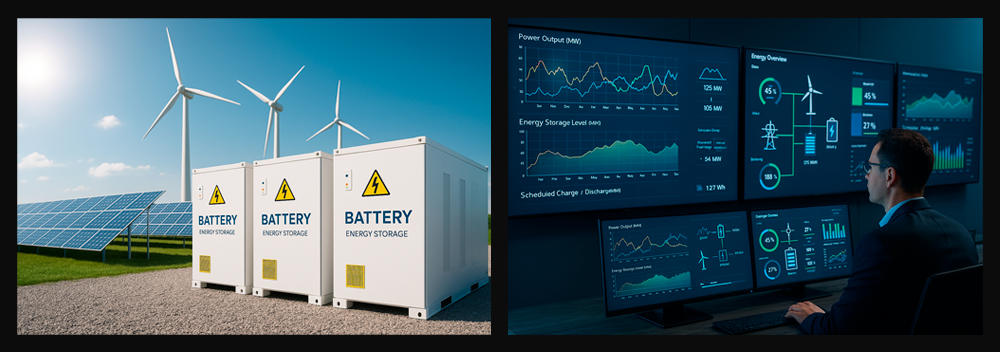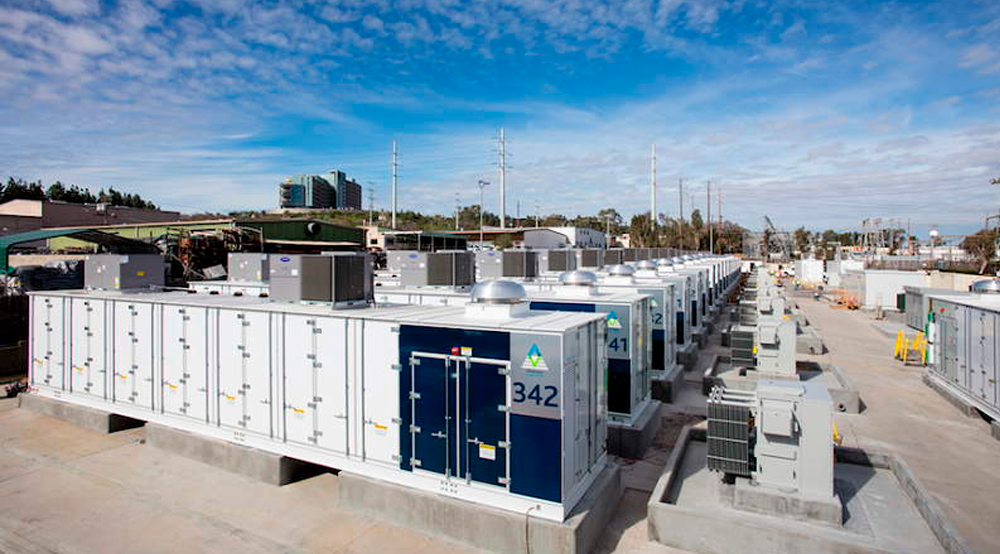As sources like solar and wind gain prominence in Brazil’s power matrix, one challenge becomes evident: how do we deal with their intermittency? The sun doesn’t shine all the time, and the wind doesn’t blow on demand. In this context, energy storage through batteries emerges as a strategic solution, offering flexibility, security, and efficiency to the electrical system.
How Storage Enhances Renewable Sources
Solar Energy
Photovoltaic systems generate electricity during the day. With batteries, the excess energy can be stored and used at night or on cloudy days. This reduces dependence on the grid and optimizes local generation. It also enables practices such as tariff arbitrage—using stored energy during peak pricing periods.
Wind Energy
Wind generation depends on variable weather patterns. Storage acts as a buffer, smoothing out peaks and drops in generation. During periods of strong winds, surplus energy can be stored and released when generation is low, avoiding waste and improving system predictability.
Other Technologies
Beyond electrochemical batteries, there are complementary technologies:
• Thermal storage: used in solar thermal plants, stores heat for later conversion into electricity.
• Mechanical storage: such as pumped hydro or gravity batteries, which store potential energy.

The Brazilian Landscape
Brazil has about 685 MWh of installed battery storage capacity (as of 2024), with significant annual growth. Most of these systems are in remote areas, such as communities in the Amazon region. In urban and industrial environments, large-scale projects still face regulatory and tax-related barriers.
Even so, various companies in the power sector have begun advancing important initiatives. Power generators and distributors are developing large-scale storage projects, integrating batteries into solar and wind farms to reduce waste and improve energy supply management. There’s also growing use of battery systems tailored to commercial and industrial consumers, offering cost reduction and greater energy autonomy.
The regulatory framework is also evolving. ANEEL has opened public consultations on the subject and is considering how to classify batteries as independent generating units. Meanwhile, the Ministry of Mines and Energy is evaluating the creation of specific auctions for capacity reserve with storage.
Strategic Benefits of Batteries
| Benefit | Description |
| Grid stability | Batteries help regulate system frequency and voltage. |
| Renewable optimization | Store excess energy and use it during periods of low generation. |
| Cost reduction | Enable the use of stored energy during peak pricing periods. |
| Autonomy and resilience | Increase energy independence for businesses and consumers. |
| Additional revenue | Allow the sale of surplus, ancillary services, and backup capabilities. |
Conclusion
Energy storage, especially through batteries, is the essential link that transforms the growth of renewables into a solid and reliable energy transition. In Brazil, the evolution of regulation and the declining cost of technology are natural drivers of its expansion. As the country adapts, storage stops being a technical add-on and begins to play a central role in national energy strategy.
Want to know how your company can benefit from energy storage and renewable solutions? Get in touch with our specialists and discover the best alternatives for your business.


